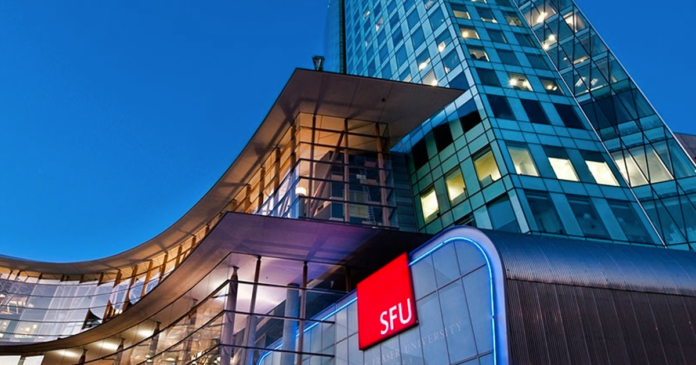“Climate change anxiety and grief” seminars held at British Columbia’s Simon Fraser University (SFU) recommend that students reduce caffeinated drinks and practice self-care to help deal with distress caused by changes in the weather and climate.
The seminars are led by clinical counsellor and psychologist Dr. Shona Adams, and are part of a research study “on understanding different interventions that people with different levels of climate change distress find helpful,” as previously reported by True North.
True North acquired the PowerPoint presentation used for Adams’ seminar.
Adams’ presentation, which offers advice and strategies to deal with anxiety and grief caused by climate change, is split into twelve sections. The sections are titled; “you are not alone!”, “purpose of emotions”, “window of tolerance”, “climate grief”, “climate courage/radical hope!”, “climate action”, “healing with nature”, “social connection”, “reimagining community futures”, “building resilience”, “balancing perspectives” and “mental health supports”.
The presentation begins with an Indigenous land acknowledgement, which mentions “climate justice” and reminds people of “other peoples disproportionately affected by climate change.” The slide also states that the seminar is being given from a “W.E.I.R.D.” (Western, Educated, Industrialized, Rich, Democratic) perspective.
Adam’s presentation calls on students to build resilience by embracing healthy thoughts, as well as practicing self-care by eating well, exercising, getting good sleep, spending time outdoors and not using drugs and alcohol to deal with pain.
The presentation also tells students they should reduce their caffeine intake, take breaks, join groups, make “practical preparations for impacts of climate change” and use “creative expression” such as art, dance and music.
Another slide provides “emergency strategies” to stop climate anxiety before it happens, which includes: spelling and counting backwards, controlled breathing, squeezing fingers, high intensity exercise, and grounding strategies.
The presentation also tells students they should have “climate courage”, which includes the courage to “face the reality of climate change”, “assess and acknowledge our contribution to climate change”, “feel the emotions”, and “take action.”
Additionally, Adams recommends that students look at balanced perspectives on climate change and says limiting certain social media sites can be helpful.
Adams told True North that the purpose of her seminars are “to help people understand symptoms of climate change anxiety and grief.” She added that they are “also to teach some coping strategies and direct people who are impacted by this with potential ways forward, and to help build resilience.”
She said her seminars came to be after she was initially “approached by a professor who was concerned about the mental well-being of some of their students in their class who are studying in this field.”
“I explicitly state that I am not an expert on climate change, as there are many at the university who study this in depth,” she added. “My expertise is in mental health and I am involved with a research group in this area, as it is an emerging area. I also explicitly state that there are many perspectives on this topic and that people are in different places in their experiences, and for all to be respectful of others.”
“Climate anxiety” is defined by an Harvard Medical School article as “distress related to worries about the effects of climate change.”
A 2021 Lancet survey conducted among 10 000 people aged 16 to 25 in ten countries saw 59% of respondents say they “very or extremely worried” about climate change, while 45% said climate concerns are affecting their daily lives. The survey also found that 40% are hesitant about having children because of climate change.
Adams held her first seminar on Jan. 24 at SFU’s Burnaby campus, and plans to hold a second one SFU’s Surrey campus on Mar. 3
– with files from True North’s Cosmin Dzurdzsa.

